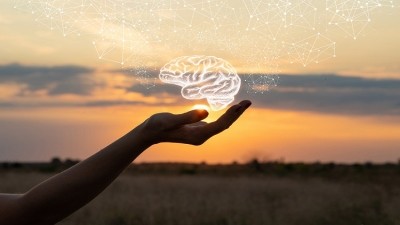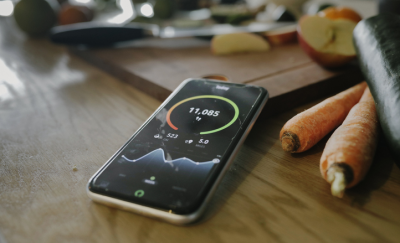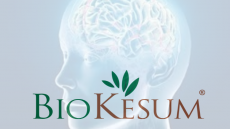Data tracking: Use of AI and modern tech speeding up healthy ageing research – Milken panel

The four-person panel exchanged views on the topic “The Longevity Code: Unlocking the Potential of Healthy Ageing” during the 2023 Asia Summit organised by the think-tank in Singapore on September 14.
The panellists include Dr Evelyne Bischof, director at Sheba Longevity Center, Sheba Medical University Hospital, Dr Brian Kennedy, distinguished professor of Biochemistry and Physiology, Yong Loo Lin School of Medicine, National University of Singapore, Dan Buettner, founder of Blue Zones LLC, and Li Lian Ng, co-founder and managing director at Tetsuyu Healthcare.
The panel was moderated by Rajiv Ahuja, associate director, Center for the Future of Ageing, Milken Institute.
From China to Singapore, longevity clinics are starting to become a common sight in hospital departments.
The Alexandra Hospital in Singapore, for example, is host to The Healthy Longevity Clinic and caters to patients between 35 and 70 years old with not more than one chronic condition.
The goal is to enhance health span by slowing the body’s ageing process, according to information stated on its website.
“Longevity is mostly about I don't have anything, I don't want to have anything, and so what can I do in order to optimise my life and make it in a complex way and have somebody who will actually help me to navigate in the best, precise way,” Dr Bischof said in response to the moderator’s questions on the types of services available in longevity clinics.
Patients will be subjected to longevity diagnostics and “a 360-degree assessment” of their bodies’ functionalities, such as motor functions, cognitive health at different life stage, and how fast are their bodies and organs ageing.
Advancements in technologies have helped to provide such comprehensive tracking and assessment, as well as analysing the data.
“On top of that, we would add monitoring or tracking, so the things that AI is now empowering us with, and what physicians are finding valuable, is continuous monitoring of various parameters, not only the glucose (levels) or (number of) steps (taken), or the heart rate or blood pressure or vital parameters…
“But to have more monitoring for cholesterol, (and) continuous monitoring of like a mini sleep lab at your home and whatever you can also track down.
“What I'm trying to say it's a very, very comprehensive amount of data that our longevity patients can gain. AI is helping us to make sense out of it,” she said.
Measuring effects of intervention
These technologies could also help researchers identify the effects of specific interventions quicker.
At the moment, some supplements are repurposed as geroprotectors for healthy ageing. Geroprotectors are a new class of drugs targeting fundamental mechanisms of ageing.
Dr Kennedy pointed out that biomarkers could serve as a proxy for measuring the effects of supplement intervention, without having to follow a person for decades to observe the effects.
“There are now hundreds of potential things that may slow down ageing, everything from lifestyle to supplements to drug stem cells, gene therapy, red light therapy, hyperbaric chambers, I could go on and on.
“The challenge is that we really don't have the data yet to validate which ones are working in which people to modify ageing, and so really, I think the field is about bringing together interventions and biomarkers.
“And if I could comment a little bit on the biomarkers, I think these clocks are really revolutionising the research in the ageing field. None of them are fully validated yet, but essentially, we can take blood parameters we can look at your DNA, we can get that from saliva, we can look at accelerometry from technology, and we can determine biologic age for an individual, and that can be an endpoint for interventions.
“One of the big challenges was that up until recently, if you wanted to know if it was working in humans, you had to have a graduate student who would spend 50 years while you gave somebody an intervention. And I couldn’t find grad students who would do that,” he said.
He said he was confident that the various interventions tested in this manner could improve healthspan.
Dr Bischof agreed that there were “fairly effective” drugs and supplements that would improve healthspan, but human clinical trials were still needed to validate the effects.
“In order to get to the point that we will have fairly effective drug compounds which we call geroprotectors and senolytics, or at least in order to know if some of those supplements that we are taking are actually working on people and not only in animal models, we need people to have longitudinal data.”
In this case, longevity clinics would play a role in gathering results of human clinical trials.
“So the movement in the longevity clinics is also for the purpose that in five to 10 years, we will have cohorts of data that we can trial those interventions on and hopefully for the future generation and hopefully also for us, some interventions that will be more than just optimised lifestyle modifications,” she said.
Interventions should be mutually supportive
Buettner, on the other hand, thinks that the interventions should be mutually supportive, instead of relying of a particular intervention to bring about healthy ageing.
This is based on his insights studying the lifestyles of centenarians, which was written into a number of books, including “The Blue Zones: Lessons of Living Longer from the People Who’ve Lived the Longest.”
“I think the big insight that I have is if you want to live longer, rather than trying to change your behaviour, which is occasionally successful in the short term for people, it fails almost all the time, to almost everybody in the long run.
“If you look at the recidivism curves in diets, exercise programmes, even pharmaceutical adherence, it's usually measured in months, after about two years you have single-digit percentage of the people doing the right thing.”
Based on his insights, holistic interventions or mutually supportive interventions, such as living in an environment that helps people make healthier choices, are more important in supporting healthy ageing.
In the same vein, Ng said that technology could be used to create the ecosystem for healthy ageing.
“Technology is wonderful in that sense that it has helped us, create that ecosystem, that blueprint, the framework of what longevity can look like, not just in terms of the years that we live but also the kind of quality that we live with.”


















